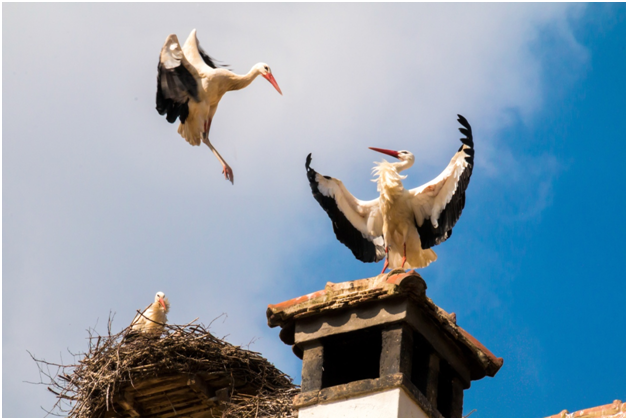It is understandable that some people don’t relish the idea of having birds set up a nest in their roofing. Unfortunately, manmade structures often provide the ideal shelter for birds to raise their young.

The law
In the UK, most species are protected and it is not permitted to simply destroy their habitat, even if it is on a person’s own property. If a nest is discovered, it must be left until the young birds have left, after which time the entrance can be blocked up.
Building work
People are advised not to commence any kind of roofing work until a nest has been vacated, but sometimes a nest might not be discovered until work has already begun. If this is the case and the developments absolutely cannot be delayed, the nest can be relocated, with an alternative nest being constructed as close to the original as possible.
Creating an alternative
To create a shelter for smaller birds, an old ice cream tub or similar object can be used by simply cutting an entrance hole. A string can then be threaded through by piercing holes with an old pencil; this will provide means for fixing the nest to its new location. Once the new nest has been made, the original one, with its eggs, can carefully be placed inside. The parents will find the nest as long as it is nearby. This is a very simple solution and takes just a few minutes to carry out. Any roof work can then be completed without disrupting the birds.
Pigeons
Feral pigeons can spread disease and are sometimes classed as vermin. A permit can be obtained to kill these birds and destroy their nests as long as it can be proven that they pose a threat to public health. Nuisance bird management services such as http://www.vvenv.co.uk/ can be brought in for these situations.
There are laws in place to protect wildlife, so wild birds must be handled in accordance with the law no matter how much of a nuisance they are. As detailed above, there are options for relocating nests, but this must be done with the animals’ welfare in mind and must not disrupt their breeding in any way. If there is any uncertainty, it is advisable to contact specialist agencies before taking any action.
